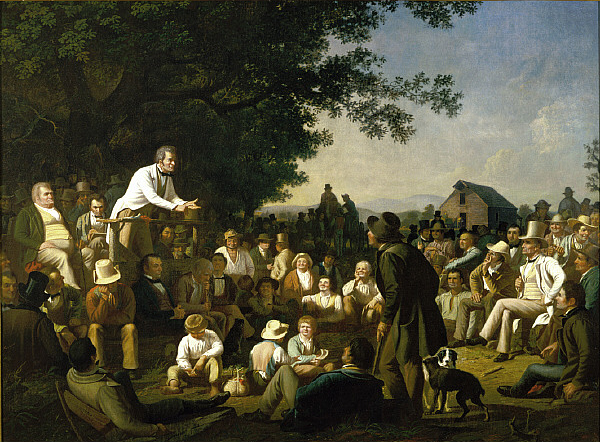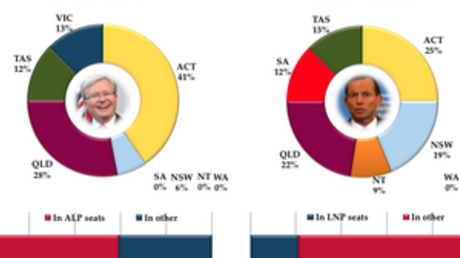
GET READY for some Pinocchio style, nose-extending shockers from our politicians in the leadup to this year's federal election, especially when the conversation turns to economics.
MPs and candidates have long twisted the truth, over-promised and under-delivered or, perhaps worse, over-simplified issues to an extent that renders their remarks useless. Or misleading.
These bogus claims come from all sides of politics, and there’s no reason the 2013 election will be any different.
We all have an obligation to ensure politicians are clear, credible and comprehensive – to get them back on track with evidence-based representations.
To this end, and after years listening to politicians (and their advisers) perform at elections, behold the Election Watch 'Shockers & Responses Matrix'. This is not a list of misleading remarks, but rather a catalogue of political rhetoric ‘red flags’.
If you hear these phrases on your long march to the ballot box then please stop and think “am I being spun a line?”
THE OFFENCE |
SOUNDS LIKE |
FIGHTBACK! |
|---|---|---|
1. The uncosted promise |
“We will fix the health system with 10 new hospitals’” |
These kinds of promises are useless unless the politician also gives explicit costings, with sources, and a time scale for delivery.
|
2. The timeless money spin |
“If elected, we’ll spend $4 billion on roads in New South Wales & Queensland.” |
Is there a policy document detailing how much money is going where, to be spent by whom, on what, and according to a set time scale?
|
3. The jargon-based excuse |
“Things got worse first because we have the ‘J-curve’ in operation” |
Either they’re trying to bamboozle you, or they don’t know what they’re talking about. Politicians should be better briefed on the true meaning of economic terms and how to communicate them.
|
4. The exaggerated attribution |
“We have created 45,000 jobs since coming to office.” |
At best, government spending provides about 25% of real spending and job creation, not 100%. Unless those 45,000 are directly located in the public service, this kind of claim should be met with a healthy serve of scepticism.
|
5. The exaggerated derision |
“They never produced a budget surplus through their entire time in Government.” |
These broad statements may be correct, but also misleading. They rarely allow for external events like the Global Financial Crisis. Context is King.
|
6. The crude tax estimate |
“If we raise the GST from 10% to 15%, it will produce a 50% boost to GST revenue |
Rarely do these kinds of estimates allow for fiscal dividend, tax substitution and other corrections to such crudities. The devil is in the detail.
|
7. The definite projection |
“GDP will grow 2.35% this year.” |
Estimates from the Treasury are never so clear-cut. Most projections reside in a 90% confidence band, meaning our example GDP may actually grow somewhere between 1.7 to 3.3%.
|
8. The multiplier myth |
“Our new stimulus package will create 10,000 jobs directly and 50,000 secondary jobs.” |
This invariably exaggerates the impact of a decision. Different multiplier effects provide different figures. Serve with one large grain of salt.
|
9. Confusion between marginal and average personal tax rates |
“We’ll produce this magic budget without raising taxes.” |
With fiscal drag, ATR’s (share of income in tax) rise with income even with Marginal Tax Rates unchanged.
|
10. Standstill personal income tax schedules |
Tables with several standstill incomes and new & old tax payments associated therewith. |
Time doesn’t stand still, and nor should the figures our politicians use to push their policies. Data should use progressions of income as the only realistic scenarios over time.
|
Suggest a story | Email the editors | About Election Watch
Images policy | To republish | Twitter | Facebook




